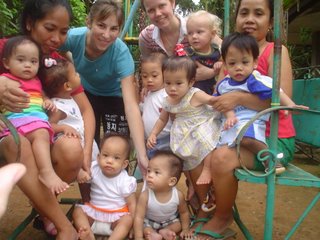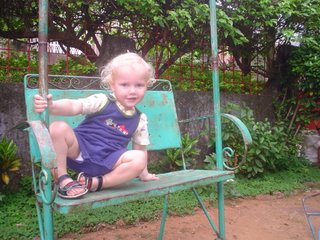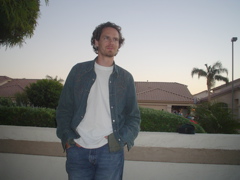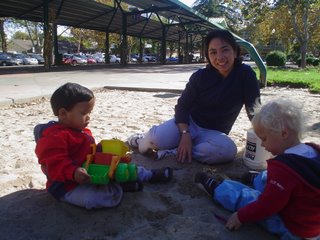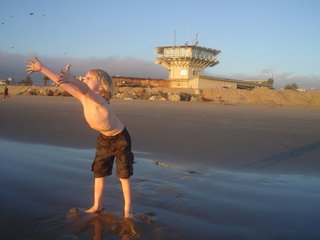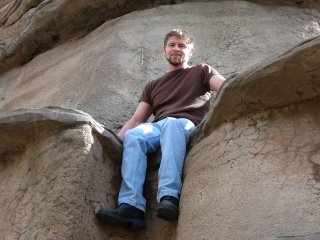 Noah's a tough guy. The story goes that when he hurt his thumb badly enough to go to the hospital and the doctor wanted to anesthetize it before he repaired it, Noah told him not to bother. The doctor insisted, though, so Noah told him, 'If it'll make you happy.'
Noah's a tough guy. The story goes that when he hurt his thumb badly enough to go to the hospital and the doctor wanted to anesthetize it before he repaired it, Noah told him not to bother. The doctor insisted, though, so Noah told him, 'If it'll make you happy.'The doctor started pushing a needle into the callus of a welder's hand, and told him he would inject pain killer when he started to feel it. But Noah never felt a thing until the doctor had to push so hard that it popped out the other side of his thumb. 'That hurt.'
 This week Noah's been in the hospital for a different reason. My sister, Charity, is recommitted with unexplained bleeding. She's had such a rough go of it with lupus, but Noah has been by her side through thick and thin. The nurses say they want to clone him because most patients don't get such attentive support. Noah's tough, physically and spiritually.
This week Noah's been in the hospital for a different reason. My sister, Charity, is recommitted with unexplained bleeding. She's had such a rough go of it with lupus, but Noah has been by her side through thick and thin. The nurses say they want to clone him because most patients don't get such attentive support. Noah's tough, physically and spiritually.I talked to my mom today (Skype!'s like a Baptist hymn, 'free and marvelous') and she couldn't stop bragging about Noah. When we were home this fall he worked on our borrowed and injured car until it ran. It's just easier for him to be helping someone, sensitively noticing what needs to be done, than not.
Hopefully Charity will be out of the hospital within the next day or two. Please join me in prayer for this young couple (married the beginning of April this year) as they walk through this dark valley.
